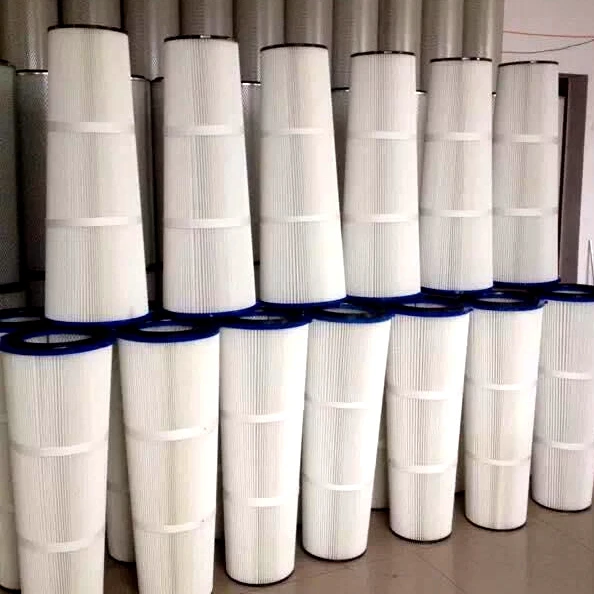 Tel:
+8618931101301
Tel:
+8618931101301
Nën . 18, 2024 12:05 Back to list
Metal Filter Elements for Enhanced Filtration Efficiency and Durability in Various Applications
Understanding Metal Filter Elements Composition, Applications, and Benefits
Metal filter elements are essential components widely utilized across various industries to ensure the efficient filtration of liquids and gases. Composed primarily of metals, these filter elements are designed to withstand extreme conditions, making them highly suitable for applications in harsh environments. This article delves into the composition, applications, and benefits of metal filter elements, providing a comprehensive overview of their significance in modern filtration technologies.
Composition of Metal Filter Elements
Metal filter elements are typically made from metals such as stainless steel, aluminum, or bronze. Stainless steel is the most common choice due to its excellent corrosion resistance, strength, and ability to withstand high temperatures. The filtration media is often fabricated through various methods, including sintering, woven mesh, or perforated sheets. These processes create a filter with precise pore sizes, allowing for effective separation of particulates from liquids or gases.
The selection of the metal and the manufacturing process is crucial, as it (a) aligns with the specific requirements of the application and (b) ensures the longevity and reliability of the filter. For instance, filters intended for high-temperature applications may utilize special alloys or coatings that can withstand thermal stress without compromising performance.
Applications of Metal Filter Elements
Metal filter elements are utilized in a wide range of applications due to their durability and efficiency. Some of the most common applications include
1. Chemical Processing In chemical plants, metal filters are used to remove impurities from raw materials and products, ensuring the quality and safety of chemicals produced.
2. Oil and Gas The oil and gas industry benefits from metal filter elements for removing contaminants from crude oil, gas streams, and drilling fluids, improving the efficiency of extraction processes.
3. Food and Beverage Sanitary stainless steel filters are employed in food and beverage production to ensure hygiene and compliance with health regulations, effectively eliminating unwanted particles and microbial contaminants.
4. Pharmaceuticals In pharmaceutical manufacturing, metal filters maintain stringent quality control by filtering out any particulate matter from solutions before they undergo the final manufacturing processes.
metal filter element

Benefits of Metal Filter Elements
The advantages of using metal filter elements are numerous, contributing to their popularity across various industries
1. Durability Metal filters are designed to withstand harsh conditions, including high temperatures, pressures, and corrosive environments, far surpassing the performance of traditional filter materials like paper or fabric.
2. Reusability Many metal filter elements are designed to be cleaned and reused, providing a cost-effective solution over time. This is particularly beneficial in industries where filters encounter heavy loads of particulates.
3. Customizability Metal filters can be customized to meet specific filtration needs, including the selection of pore size, shape, and configuration, allowing for tailored solutions for various applications.
4. Filtration Efficiency With precise pore sizes and structural integrity, metal filter elements offer high filtration efficiency, effectively capturing unwanted particles while allowing smooth flow of the processed mediums.
5. Sustainability By being reusable and often recyclable, metal filters contribute to more sustainable practices within industrial processes, minimizing waste and reducing the environmental impact.
Conclusion
Metal filter elements play a crucial role in modern filtration systems. Their robust design and ability to perform under extreme conditions make them indispensable across various sectors, including chemical processing, oil and gas, pharmaceuticals, and food production. By understanding the composition, applications, and benefits of these filters, industries can make informed decisions that enhance operational efficiency, sustainability, and product quality. In a world increasingly striving for efficiency and safety, metal filter elements continue to be at the forefront of filtration technology advancements.
-
The truth about washable filters: Does repeated use really not affect efficiency?NewsJun.25,2025
-
Effect of humidity on the performance of activated carbon filter elementsNewsJun.24,2025
-
Material selection considerations for dust removal filter elements under high temperature conditionsNewsJun.23,2025
-
Cold knowledge of air filters: Why are some designed to be pleated?NewsJun.16,2025
-
Factory direct supply! High-precision air filter element wholesale and customizationNewsJun.12,2025
-
A complete analysis of the practical value of activated carbon filtersNewsJun.10,2025

 Email:
Email:





